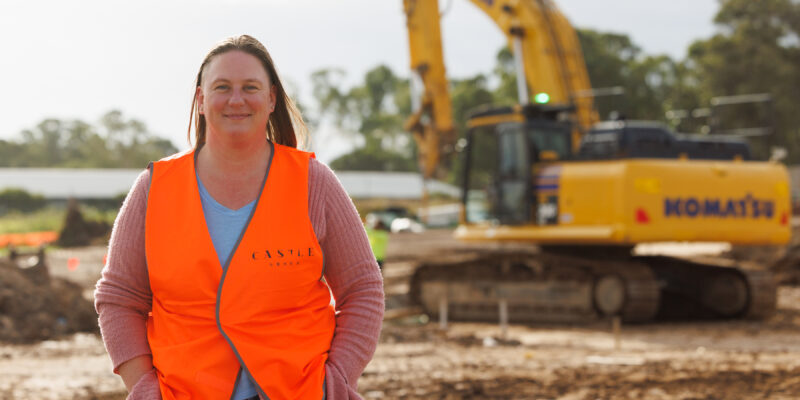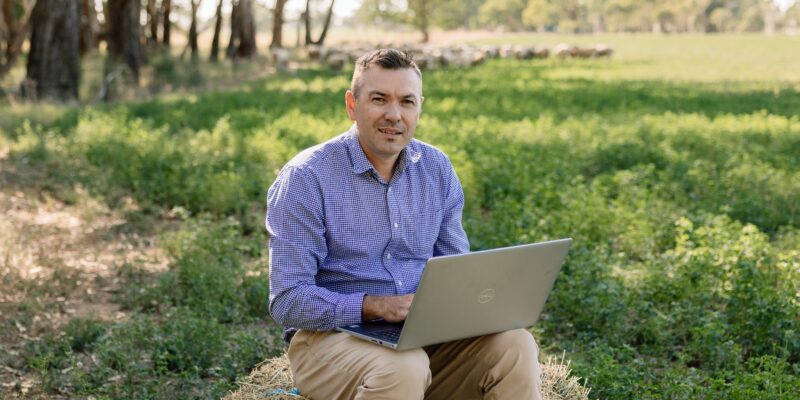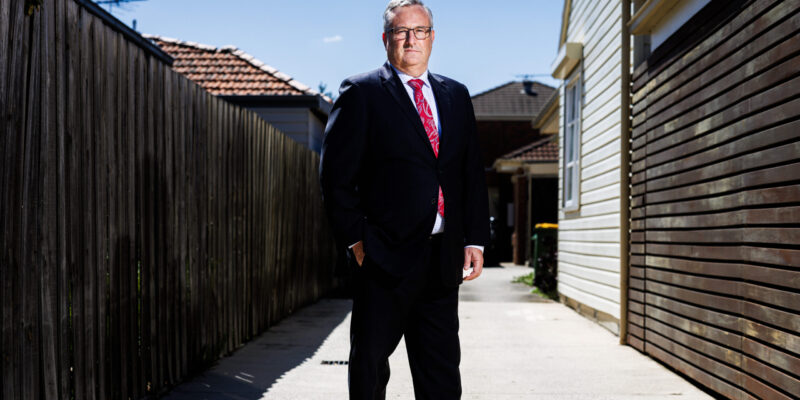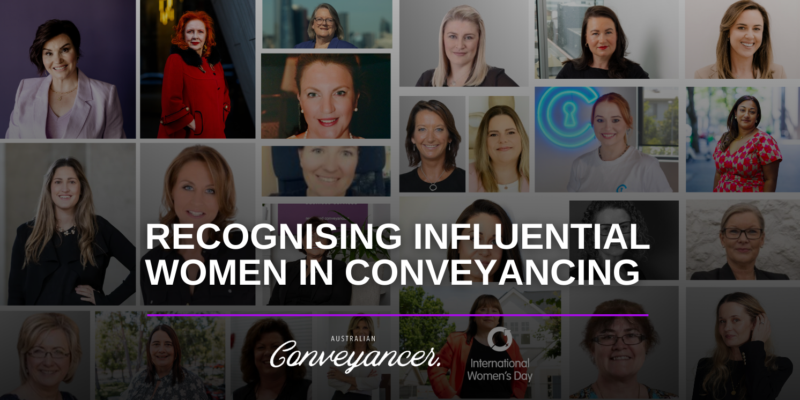Ann tech-savvy and heartfelt approach to customers
Ann Blannin-Ferguson was elected Australian Institute of Conveyancers NSW president a year ago, bringing four decades of expertise to her significant advocacy role. Time has taught her so much and Ann has evolved as a practitioner and as a leader of people along the way.
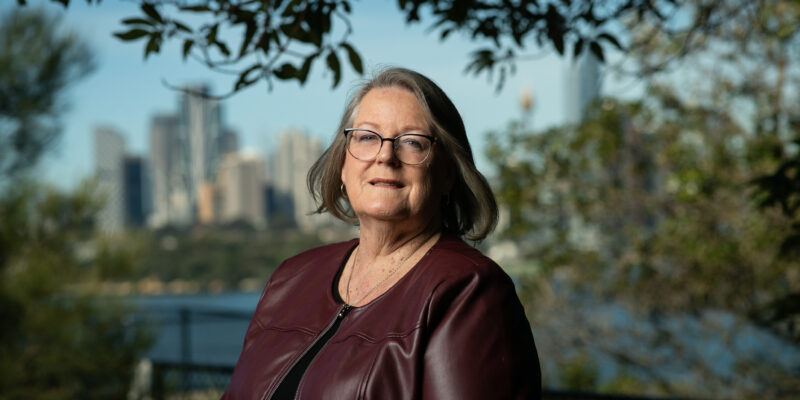
ANN Blannin-Ferguson was elected Australian Institute of Conveyancers NSW president a year ago, bringing four decades of expertise to her significant advocacy role.
During the course of her career, she has witnessed many changes, recalling a Monday morning in the late 1980s when the solicitor she worked with brought in a computer and handed over an instruction book, telling her and other staff members to “turn it on and see what you can do”.
Today, Ann embraces technology as the way of the future, but one thing has remained steadfast: the trust clients invest in her to handle what’s often their biggest asset.
“I’d say at least a third of my job is psychology, trying to keep people on track and not too stressed,” she quips.
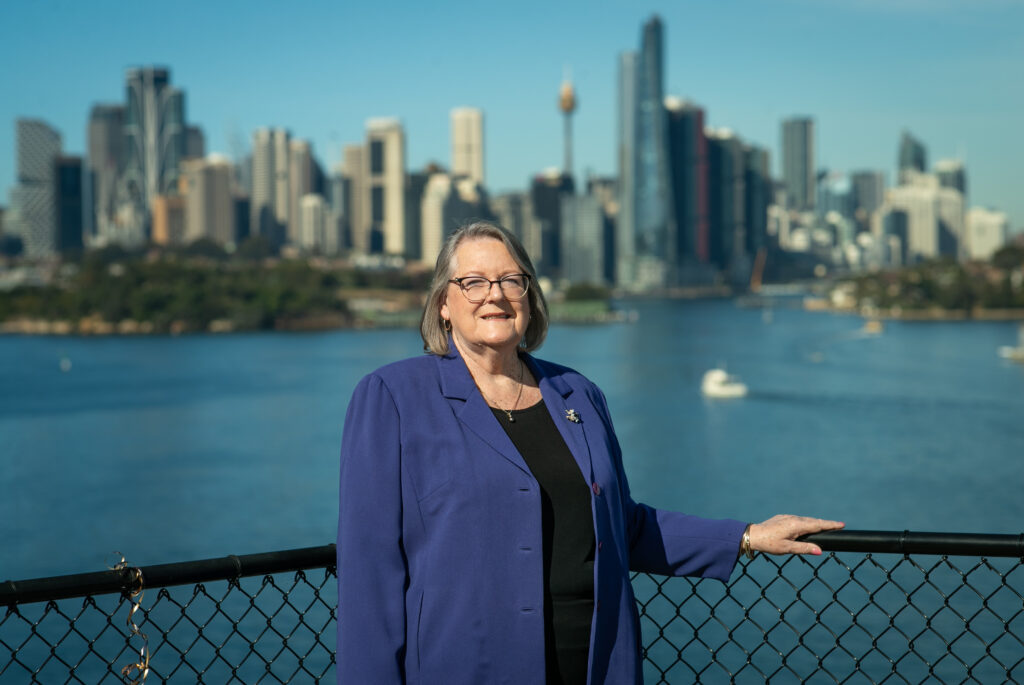
From her conveyancing practice on Sydney’s Lower North Shore, Ann has counted generations of the same family among her clientele.
After decades in the industry, she still finds her work satisfying and enjoys the black and white nature of her profession.
Her achievements on the AIC NSW board have been a source of pride and she enjoys meeting other conveyancers and hearing ideas about how the sector can be improved. Australian Conveyancer sat down with Ann to learn more about the well regarded industry leader and how she copes with her busy roles in these changing times.
Australian Conveyancer: What are some practical challenges you face in your own firm?
AB-F: Not having enough hours in the day when it gets really busy. You end up doing stuff in the middle of the night, sending off emails at 11pm.
A small business’s workflow also ebbs and flows.
Sometimes we’re really busy, other times we’re scratching for things to do. At what point do you bite the bullet and put someone else on? As soon as you organise it, work suddenly drops off and you’re considering updating the archives or cleaning out the cupboards.
Then suddenly, you’re busy again and could do with an extra pair of hands. I find that side of things difficult.
AC: What obstacles do technology advances bring and how do they affect your workflow?
AB-F: I have a really good IT bloke who answers my most basic questions. I’m sure I’m the reason why he drinks and swears as well.
You’ve got to ensure you’re protected and your whole system is not going to fall over. That’s a challenge, but I’ve met all of them over the years.
There are days I think I’d like a typewriter, some carbon paper and to be able to put a letter in the mail. To not have to respond to something immediately, and have more time to consider options.
But on the whole, I try to grab technology and run with it.
When electronic conveyancing was coming in, people were saying, ‘Oh, I’m not doing that until I have to do’. I thought that was really dumb. You’ve got to get your head around it because this is the way of the future and there’s no use denying it.
We’ve got PEXA and possibly some more ELNOs coming on track soon. I use the TriConvey system and I find that’s really good. I also quite often do Zoom meetings if clients can’t pop in or or I can’t see them somewhere convenient. That’s really helpful, especially if we’ve got a very complex contract. I’ll make sure they’ve got the contract in front of them and we’ll go through it.
AC: How do you ensure your practice is as profitable as it needs to be?
AB-F: We don’t waste money. I have some very strong Scottish heritage with a dash of Jewishness in there, so we are minimalist and try to keep it as simple as we can. We’ve just got a couple of computers and an old client gave us a really good photocopier, which was very kind. That’s been a godsend. I work mainly from my sunroom or pop up to my Newport office to see people there as well.
AC: How do you cope with industry changes?
AB-F: As soon as something happens, we make sure we’ve got our heads around it. We discuss any changes in legislation or what Revenue New South Wales or Land Registry Services is doing at great length.
For many things, you don’t have a choice as to whether you’re going to do it or not.
But you really need to understand what you’re doing, and how and why you’re doing it, and incorporate that into your daily work.
AC: How do you deal with increased obligations around data security and legal compliance?
AB-F: We’ve discussed at great length things like identity verification, where we must keep people’s private information for a long period before it can be destroyed.
I encourage my clients to use the Australia Post system for doing their verifications, that way it can sit there on their cloud rather than mine. As long as I tick the boxes, I’m fine. We get all that done very early in the matter.
All my paper files also get digitised and come back on a thumb drive, so if TriConvey goes down, I have another way of finding old files. But once they’re archived, they’re archived.
In terms of other financial security, I’m the only person with control over the trust account.
For cybersecurity, I don’t give out account details to anyone in the body of an email and if I’ve got clients transferring money into my trust account, I always ask them to double check account details.
I haven’t had any real problems. There’s no money going astray and I haven’t had any cybercrime issues, which is good.
AC: How do you ensure work life balance?
AB-F: I do my best to make time for myself. Often I’ll move things around if I want to go to lunch with a friend or have an extra long weekend. Sometimes if you’ve gone away for the weekend, you have to take the laptop in case there’s a settlement on a Friday afternoon. I’ve done settlements from all sorts of places.
There’s always something to do, to be honest, and you could sit here and work seven days a week, but sometimes you’ve just got to say enough’s enough.
I don’t answer the phone to clients on a Sunday. That’s my day that absolutely nothing happens. Quite often on a Saturday if clients have gone to an auction, they might need to talk to me about something, so I’m happy to talk to them on a Saturday. Sometimes if clients have to sign something in ink, rather than through Docusign, I’ll see them on a Saturday morning.
You’ve got to be flexible with people. Not everyone can come to see you between nine and five.
AC: How do you retain and develop staff?
AB-F: I like to maintain flexibility. My other staff member Julian’s just only recently got his full licence and he likes that I’m very flexible in what hours he works. If he can work from home, that’s fine. He does things other than conveyancing, so he always makes up the time. It’s a give and take situation.
AC: What do you think of the industry trend of larger conveyancing firms acquiring smaller practices?
AB-F: There’s pros and cons. If they’re gobbled up by extremely large corporations, clients lose a lot of that one-on-one with a practitioner.
In some very large companies, like legal firms, practitioners also get pigeonholed. You might do one little section of a matter, but not the whole matter, and you’re stuck doing very repetitive work.
In a small practice like this, we do something different every day and it gives us broader expertise.
I can see the pluses and the minuses of acquisitions, but it’s not for me.
It’s not my plan to sell the practice to a larger conglomerate, but I won’t say won’t, in case they want to offer me a large amount of money.

AC: What are the risks to the industry’s profitability?
AB-F: The more staff you’ve got, the more supervision is needed to ensure everyone’s pulling their weight.
That can bring certain problems as well, like inhouse politics of who does what and when, which is something we don’t have here, and something I don’t miss.
Having worked in larger firms, I’ve had people who look busy but aren’t actually achieving anything. They’re hurrying here or there, but when you look at their billings, they’re not actually getting anywhere fast.
AC: How is the current property environment and interest rate uncertainty impacting the sector?
AB-F: It impacts us greatly. If they were to keep interest rates on hold for another six months or more, we’d probably expect to be very busy. Actually, we expected to not be very busy over the Covid years and were flat out. I just worked my little self into the grave during Covid, there was so much property changing hands. I was quite amazed at that.
AC: How do compliance obligations affect the industry?
AB-F: Compliance obligations are increasing, with something different every year.
This year we’ve had additional cyber security requirements and questionnaires about electronic conveyancing.
We have to comply with all sorts of things just get our professional indemnity insurance.
The insurer will look at your risk management and any cyber problems and bill you accordingly, and the insurance seems to go up and up. But it’s whole industry coverage and covers you after you’ve retired.
We also must update our education and pass an exam each year to stay licensed.
Compliance is part of the job and there’s not much wiggle room to be different to everybody else.
We’ve all got to make sure the forms are correct and the clients are advised accordingly, whether you’re buying into a retirement village or a two-bedroom unit down the road.
AC: What are the risks and rewards of using AI in workflows?
AB-F: It’s a bit early to implement AI and I don’t actually know anyone who’s gone down that road yet.
We often get ads offering contract reviews, but I don’t feel confident AI could do it properly at the moment.
If I’m reviewing a contract for a client, the things I’m looking for could be different from what the AI has been set up to do. You’d have to set it up to your individual needs, and then it could assess a property as being prone to flooding, or bushfire, for example.
AC: How is the sector helping staff achieve work-life balance?
AB-F: Fifteen years ago, people were literally working themselves into an early grave, but today everyone I know in the industry seems to consciously try and make their life well balanced.
We’ve all become more aware of making sure there’s a balance between work and non-work, and to actually go out and enjoy the sunshine. We’ll often go out and just sit in the park at the end of the street that overlooks the harbour and have lunch, which is very nice.
